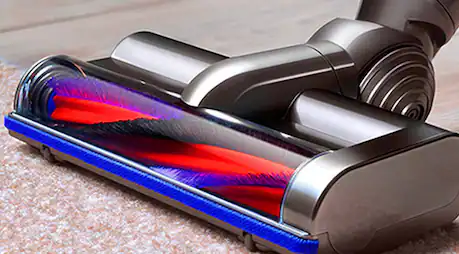Date Published: 03/17/2017 | Author: Best Buy
Tips for Reducing Home Allergens
Dealing with the sneezing, coughing and sinus congestion caused by common allergies or asthma can leave you feeling miserable. However, there are ways to help your allergies and improve your symptoms. Taking steps to reduce allergens in your home can help limit your exposure to indoor allergens — including dust mites, dander and mold — that may be causing or exacerbating your symptoms.

Clean Frequently
Although there's not a way to completely prevent allergens from entering your home, you can keep them in check by cleaning your home regularly. Dusting, vacuuming and washing linens helps remove particles that can irritate your symptoms and give you some allergy relief.
Sheets and bedding are hotspots for dust and mites. Clean your bed linens in hot water at least once a week, and encase your mattress, box spring and pillows with dust-mite-proof covers. Choose cotton or synthetic bedding instead of down or wool.
For cleaning carpets, rugs and upholstery, choose a vacuum with HEPA filtration to capture dust and mites. You may also want to deep clean your carpets frequently with a carpet cleaner to remove dirt embedded in your carpet's fibers.
Use a Home Air Purifier
Airborne allergens can irritate your throat, eyes and sinuses. Using an air purifier for allergies can help make it easier to breathe and reduce congestion. There are several different types of filtration available for air purifiers, including HEPA filtration, activated carbon, UV-C technology and ionization. These technologies work to reduce airborne pollutants such as mold, smoke, pet odors, dust, bacteria, viruses and other particles.
Often paired with HEPA filtration, an activated carbon filter helps capture smoke and other odors. Once these pollutants are trapped in the filter, they won't be released back into the air. Activated carbon can also help reduce irritants such as formaldehyde, perfume and cooking odors.
UV-C technology often works as a backup filter alongside HEPA filtration and activated carbon to capture germs such as bacteria, viruses, fungus, mold and mildew. Hospitals often use this technology to help protect against the spread of germs and contagious illnesses.
A home air purifier with ionizing technology helps remove pollutants from the air by generating negative ions that attract positively charged air pollutants. These types of air purifiers can help reduce pet and dust allergies. When these charged particles become too heavy to stay in the air, they fall to the floor or attach to surrounding objects. Although this removes the particles from the air, it doesn't prevent them from becoming airborne again if disturbed.
A HEPA air purifier works by capturing tiny particles not seen by the naked eye, such as bacteria, viruses, mold and certain chemicals. The more times that air flows through the HEPA air filter, the cleaner the air will become to help provide allergy relief.
Control Humidity Levels
Living in an environment that's too humid or too dry can exacerbate seasonal allergies or asthma symptoms. A humidifier or dehumidifier can help you control the moisture levels of the air around you for a more comfortable environment. According to EnergyStar.gov, indoor humidity levels should be between 30% and 50%.
A dehumidifier, on the other hand, removes excess moisture from the air. This is helpful for drying out your basement or making a humid climate more comfortable. Air that is too moist creates a breeding ground for mold and mildew.
A humidifier adds moisture to dry air, which is especially helpful in cold or dry climates. The added moisture makes it easier to breathe and soothes irritated sinuses.
Reduce Pet Allergens
Although pets bring a special joy to life, they can also introduce allergens into your home, such as pet dander. If you suffer from pet-related allergies, you can help reduce irritation by vacuuming regularly with a pet vacuum that includes HEPA filtration, using an air purifier large enough for your space, and keeping pets out of the bedroom. Shampooing your pet's coat and grooming regularly can also help reduce allergens in your home.
Shop Related Products
Related Resources
Beat allergy season.
Air Purifier benefitsFind Your Perfect Vacuum
Vacuums Buying Guide ›What is High-Efficiency?
Laundry Buying GuideSponsored


